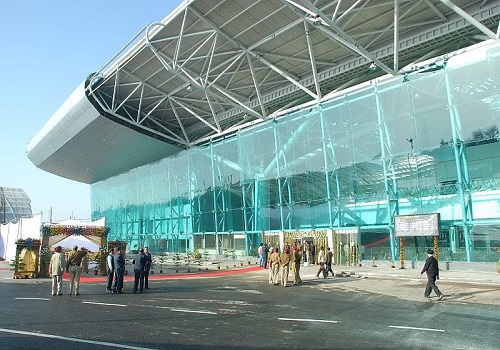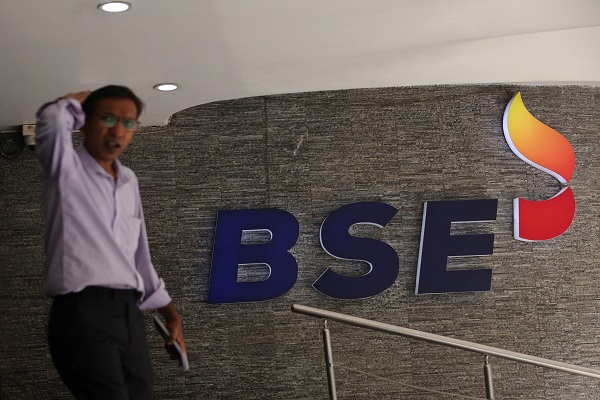GB Logistics Commerce coming with IPO to raise Rs 25 crore

GB Logistics Commerce
- GB Logistics Commerce is coming out with an initial public offering (IPO) of 24,57,600 equity shares in a price band Rs 95-102 per equity share.
- The issue will open on January 24, 2025 and will close on January 28, 2025.
- The shares will be listed on SME Platform of BSE.
- The face value of the share is Rs 10 and is priced 9.50 times of its face value on the lower side and 10.20 times on the higher side.
- Book running lead manager to the issue is SKI Capital Services.
- Compliance Officer for the issue is Payal Maheshwari.
Profile of the company
GB Logistics Commerce operates across two main business verticals: logistics and trading of agricultural commodities. The company provides full truckload freight services for large and medium-sized enterprises, utilizing both proprietary and third party transportation services to manage logistics. Their offerings include regular full-truckload transportation, special handling, go down-to-go down transportation, delivery above ground floor, and handling out-of-delivery area shipments. With a fleet comprising light, heavy, closed body, and trailer trucks, GB Logistics ensures extensive domestic coverage and timely delivery.
In addition to logistics services, the company is engaged in trading agricultural commodities, capitalizing on opportunities that arise incidentally to their logistics activities. This diversification enhances their revenue streams and supports their role in both the agricultural and logistics sectors. The company’s strategy includes market expansion, operational efficiency, technological integration, and specialized handling services, positioning them as a comprehensive logistics partner. By focusing on customer requirements and leveraging their expertise in remote and challenging deliveries, the company maintains its operations in the logistics landscape.
The company specializes in full truckload freight services for large and medium-sized enterprises. Utilizing both proprietary and third-party transportation services, the company efficiently conducts logistics operations. It positions itself as a partner for businesses across sectors, providing comprehensive cargo movement solutions. Additionally, the company has a wholly owned subsidiary, GB Hospitality (India) Private Limited, engaged in a similar line of business.
Proceed is being used for:
- Prepayment or repayment of a portion of certain outstanding borrowings availed by the company
- Working capital requirements
- Fund expenditure towards purchase of truck chassis and truck bodies
- General corporate purposes
Industry Overview
The Indian logistics industry is growing, due to a flourishing e-commerce market and technological advancement. The logistics sector in India is predicted to account for 14.4% of the GDP. The industry has progressed from a transportation and storage-focused activity to a specialised function that now encompasses end-to-end product planning and management, value-added services for last-mile delivery, predictive planning, and analytics, among other things. One of the key drivers of this expansion is projected to be the rise of India's logistics industry, which employs 22 million people and serves as the backbone for various businesses. The logistics sector in India was valued at $250 billion in 2021, with the market predicted to increase to an astounding $380 billion by 2025, at a healthy 10%-12% year-on-year growth rate. Moreover, the government is planning to reduce the logistics and supply chain cost in India from 13-14% to 10% of the GDP as per industry standards.
A warehouse is an essential component of corporate infrastructure and one of the primary enablers in the global supply chain. The Indian warehousing market is predicted to reach $34.99 billion (Rs. 2,872.10 billion), expanding at a CAGR of 15.64% from 2022 to 2027. Modern warehouse facilities and technology-driven solutions have changed the warehousing sector in India in recent years. With increased demand and supply throughout the years, the Indian warehousing industry is gaining traction. The key players are third-party logistics (third-party logistics) and e-commerce enterprises, which are growing into tier 2 and 3 cities and eventually increasing their proportion of secondary marketplaces. Businesses are transitioning to a hub-and-spoke model while also implementing technology to simplify operations, with an eye on the larger picture of ease, efficiency, and sustainability. India saw a 21% year-over-year increase in the total stock of Grade A and B warehouse space in the top eight cities in 2021. The total warehousing capacity is expected to be 287 million square feet by the end of 2021, up from 238 million square feet the previous year. Grade A stock in India was 134 million square feet, representing a 5-year CAGR of 29.9%.
The warehousing and logistics industry in India is a dynamic and rapidly growing sector that is expected to play an increasingly important role in the country's economy. Despite some challenges, the sector is well-positioned for long-term growth and presents exciting opportunities for investors and businesses. With the government's focus on improving infrastructure and the rise of ecommerce, the sector is expected to be a key driver of economic growth in the country. Moreover, with the increasing adoption of technology and the government's push for a digital economy, there is also significant potential for logistics players to leverage data analytics, artificial intelligence, and machine learning to improve operational efficiency and enhance customer experience. There are also opportunities for foreign investment as international companies look to tap into India's growing logistics market. The government has made it easier for foreign companies to invest in the sector by allowing 100% foreign direct investment in logistics parks and warehouses.
Pros and strengths
Robust fleet and infrastructure: The company boasts a well-maintained and efficient fleet of trucks, contributing to reliable and timely delivery services. Strong logistics infrastructure facilitates smooth operations and enables the handling of large cargo volumes.
Expertise and experience: A highly experienced and skilled workforce with deep knowledge of the logistics and transportation industry. Well-versed management capable of making informed decisions and navigating challenges effectively.
Strategic partnerships: Strategic collaborations with third-party transportation services, expanding service capabilities and ensuring flexibility in meeting customer demands.
Risks and concerns
Maximum revenue comes from limited customers: The company has garnered 80.09%, 54.24% and 60.43% of its total revenue on consolidated basis from top 10 customers in FY24, FY23 and FY22 respectively. There is a concentration risk as any decline in its quality standards, growing competition and any changes in the demand for its services by any of these customers may adversely affect its ability to retain them. The company cannot assure that it shall generate the same quantum of business, at all, from these customers, and loss of business from one or more of them may adversely affect its revenues and profitability. However, the composition and revenues generated from these customers might change as it continues to add new customers in the normal course of business.
High geographical concentration of revenue from Maharashtra: The company derives a significant portion of its revenue from the state of Maharashtra. This geographic concentration exposes the company to risks associated with regional economic, political, and environmental conditions. Any adverse developments in Maharashtra, such as economic downturns, political instability, natural disasters, or regulatory changes, could have a material adverse effect on the Company's business, financial condition, and results of operations. Given the high dependence on this particular region, any significant disruption within Maharashtra could lead to a substantial decrease in revenue and profitability, thereby affecting the overall stability and growth prospects of the company.
Business is seasonal in nature: The company’s business experiences seasonal fluctuations, particularly noticeable in the months of October, November, and December. During these months, which coincide with various holidays and festive seasons, there is a notable decrease in sales. This seasonal trend can meaningfully impact its revenue and cash flow during this period. As a result, its financial results for these months may not be representative of its performance in other parts of the year.
Outlook
GB Logistics Commerce is engaged in the business of Logistics. The company offers qualified drivers, a fleet of vehicles, and a charter network for flexibility, responsiveness, and high-capacity transportation. The company offers full truckload freight services to large and medium-sized enterprises, leveraging both its own and third-party transportation resources to efficiently manage logistics. On the concern side, the company is significantly dependent on its freight brokers for procuring business and may not be able to exercise complete control over the services offered by them. Moreover, the current geographic concentration of its operations creates an exposure to local economies, regional downturns and severe weather or other catastrophic occurrences.
The company is coming out with a maiden IPO of 24,57,600 equity shares of Rs 10 each. The issue has been offered in a price band of Rs 95-102 per equity share. The aggregate size of the offer is around Rs 23.35 crore to Rs 25.07 crore based on lower and upper price band respectively. On performance front, the revenue growth of 186.92% in Fiscal March 2024, rising from Rs 4,029.93 lakh to Rs 11,562.48 lakh, was driven by substantial gains in both logistics and trading. Logistics revenue grew 154.75% to Rs 4,483.38 lakhs, and trading surged 211.85% to Rs 7,079.10 lakhs, reflecting the expanded market reach, improved efficiency, and a stronger focus on high-demand segments. Moreover, the substantial 532.66% increase in Profit After Tax (PAT) from Rs 76.86 lakh in Fiscal March 2023 to Rs 486.24 lakh in Fiscal March 2024 was driven by significant revenue growth in both logistics and trading, improved cost efficiency through economies of scale, and controlled operational costs relative to revenue expansion.
The company’s primary strategy involves a targeted expansion of its market presence and coverage. It aims to solidify its position in existing territories while strategically entering new geographic regions. By leveraging its extensive fleet and logistics infrastructure, it intends to offer its comprehensive Full-Truckload (FTL) services to a broader customer base. This expansion aligns with its commitment to providing reliable and efficient transportation solutions, contributing to increased market share and overall growth.
























